Abstract
1. Flavonoid synthesis was able to proceed in darkness in young shoots and seedlings of the tea plant, but was increased by light. 2. The initial effect of darkness was to inhibit synthesis of the A ring or its linkage to the phenylpropane moiety of the flavonoid, but later the hydroxylation state of the flavanols was affected, leading to smaller proportions of gallocatechins and of complex leucoanthocyanins. 3. The esterification of catechins with gallic acid was less affected, so that the ratio of catechin gallates to simple catechins also increased. 4. The flavylogen content of darkened stems, especially in seedlings, was much less decreased than that of leaves; however, a short subsequent light-treatment caused an increase in polymerization.
Full text
PDF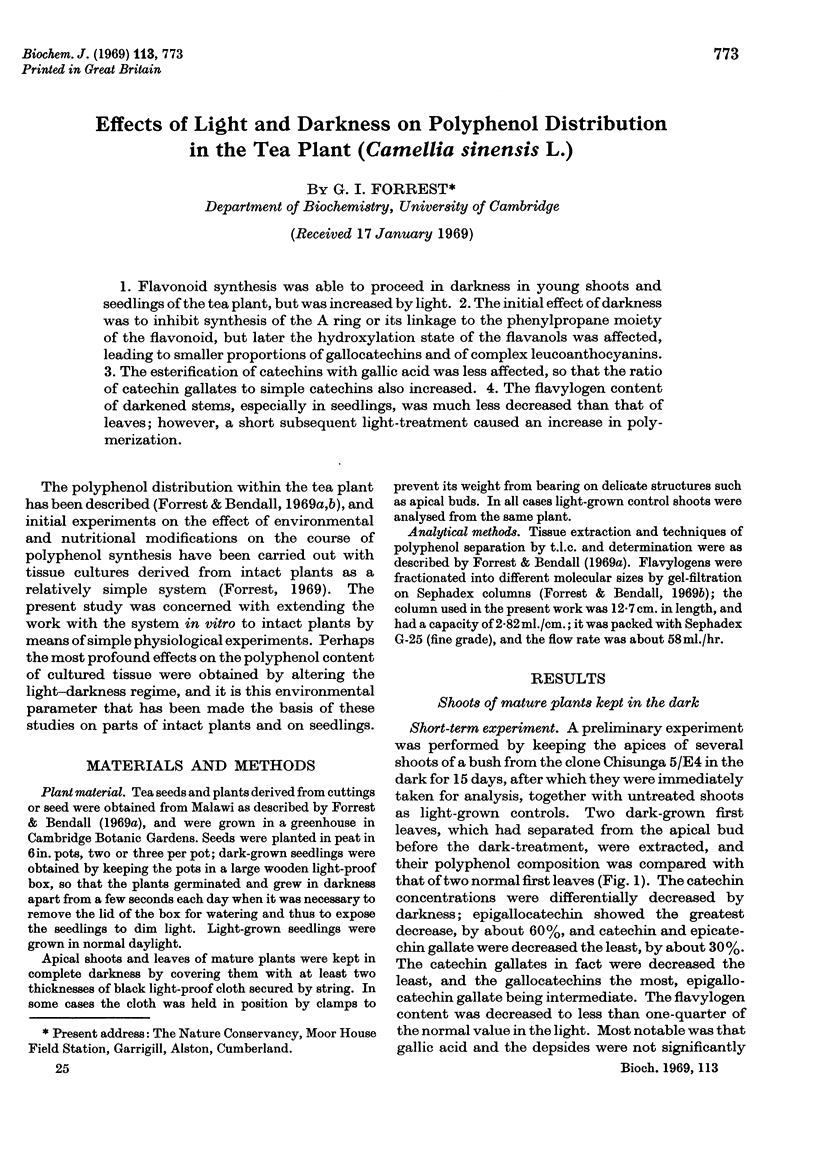
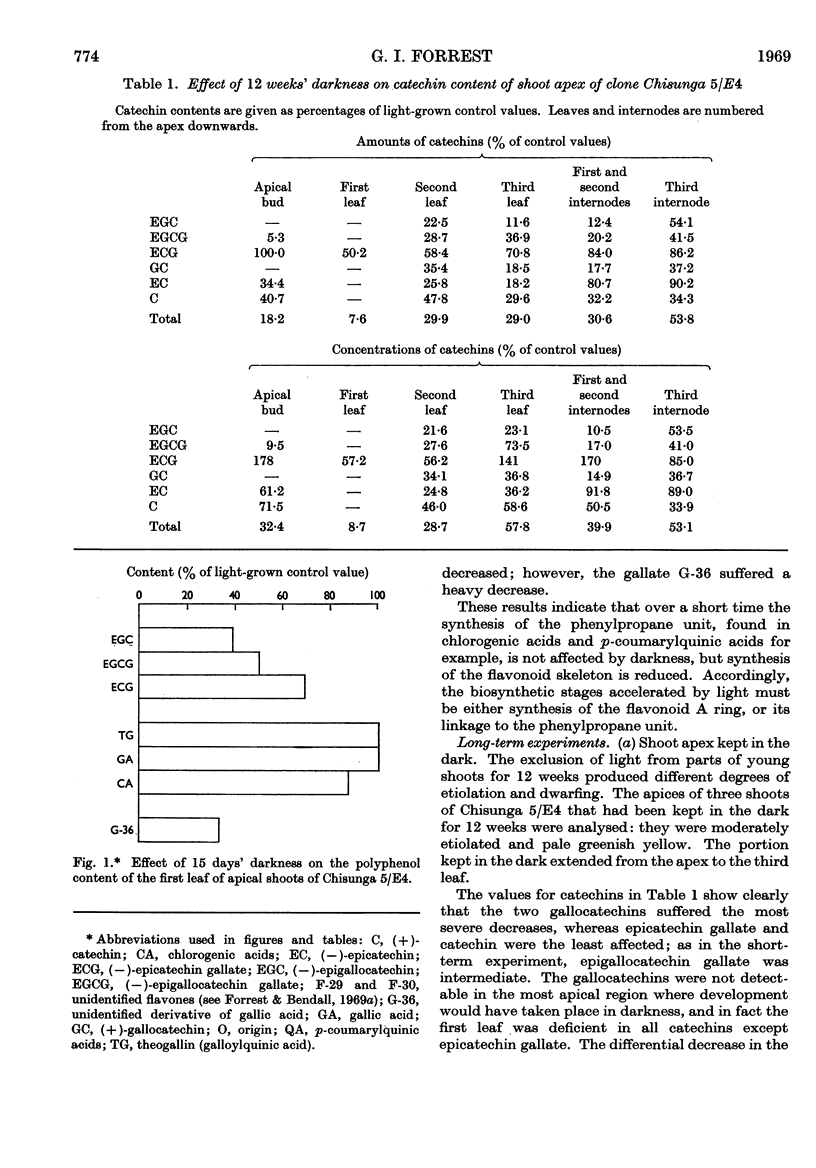
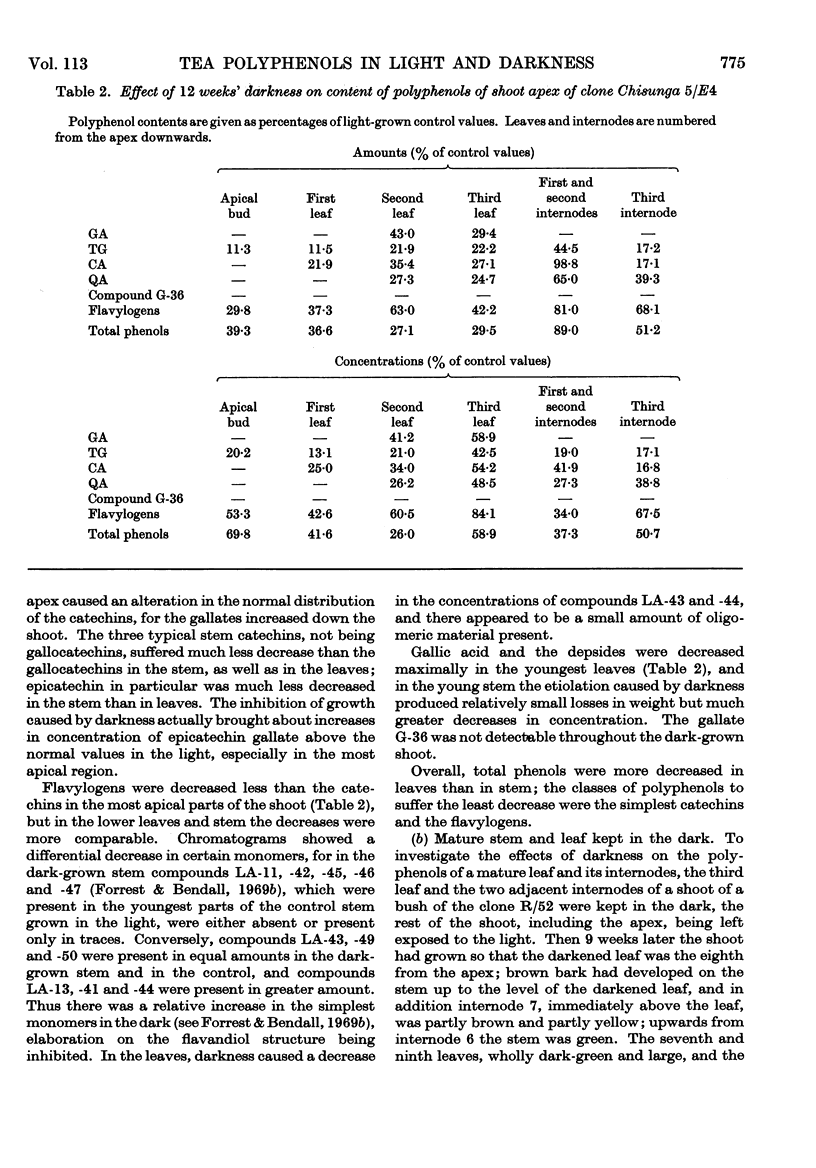
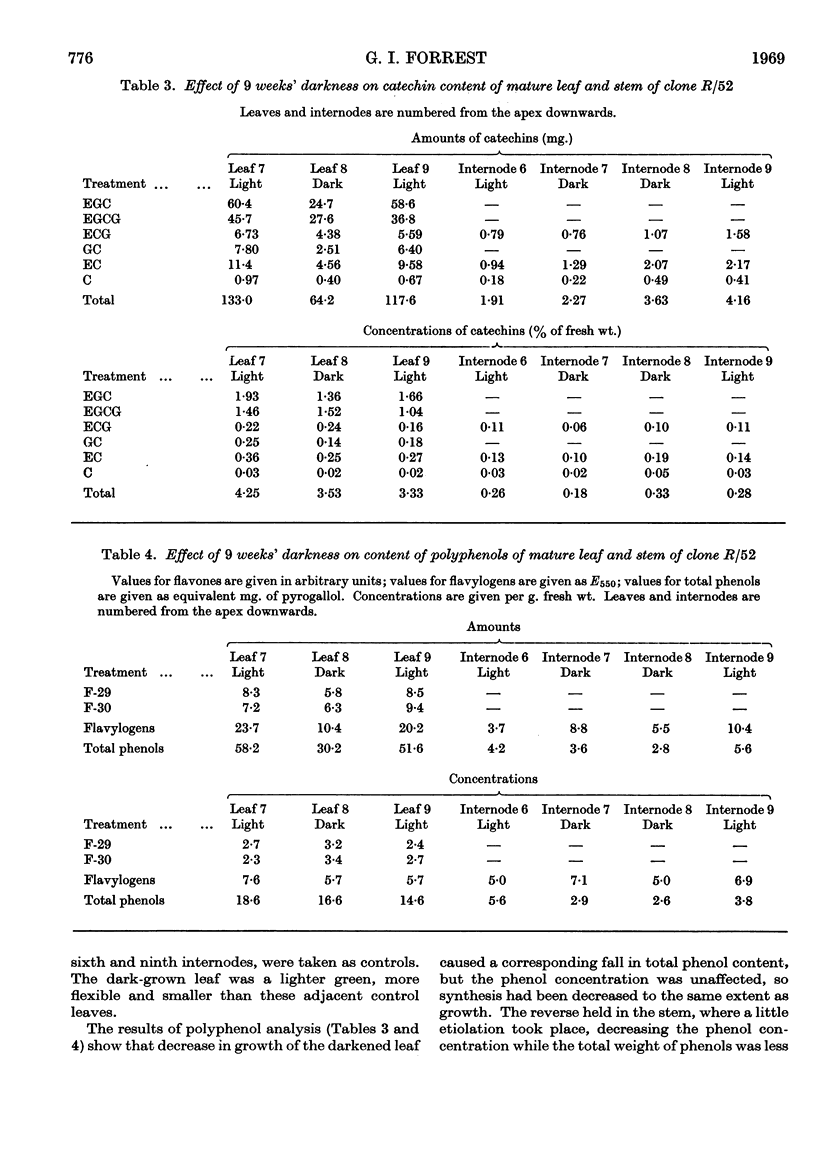
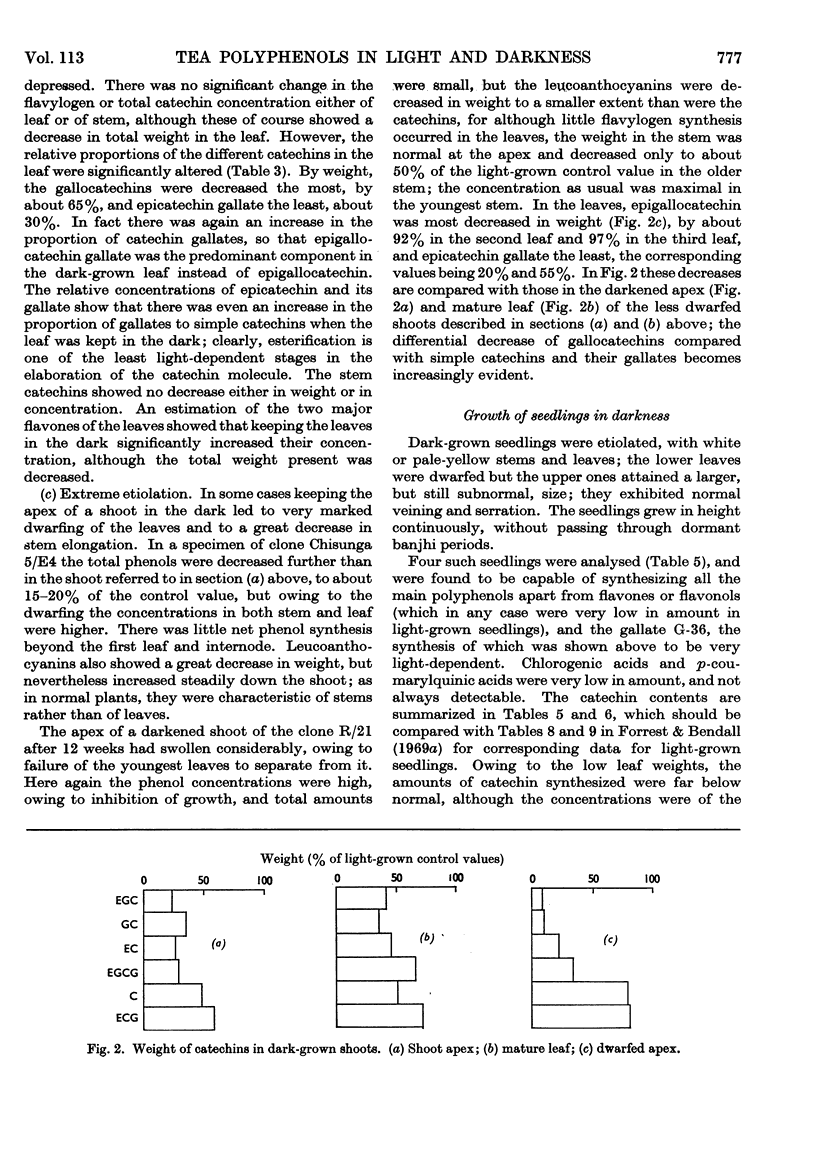
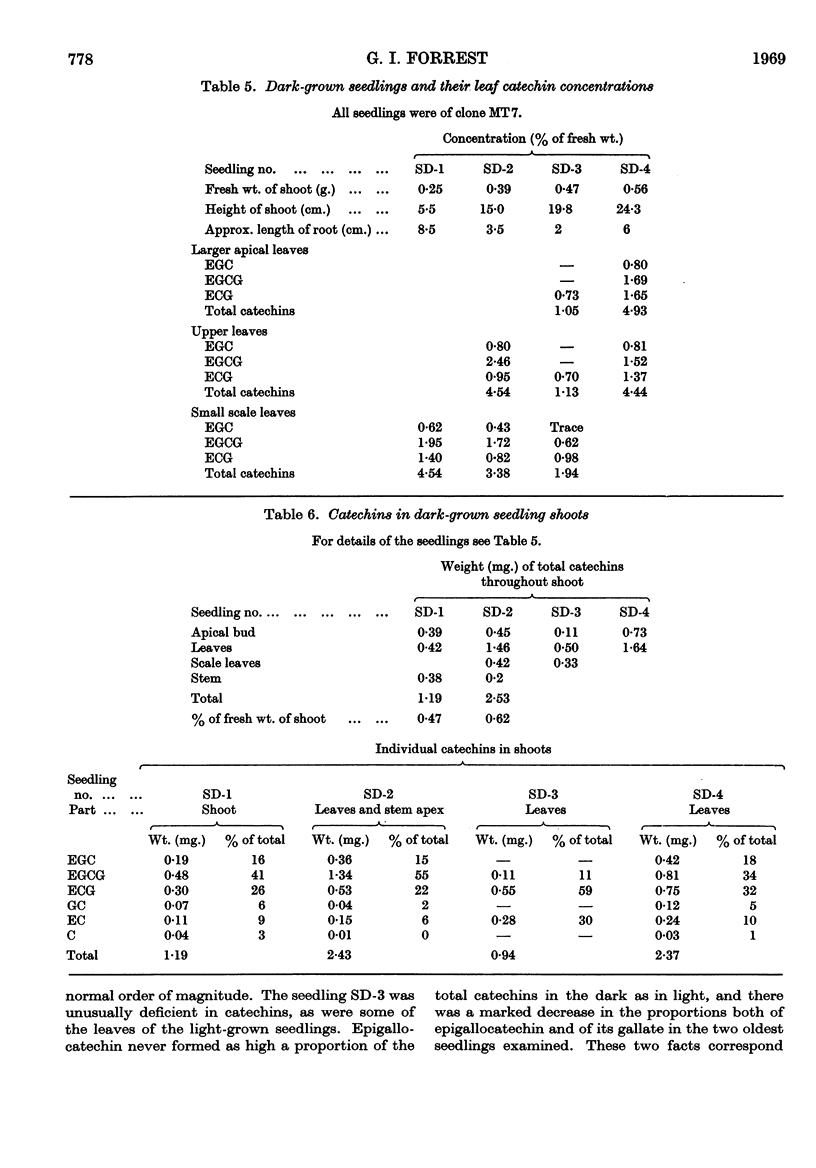
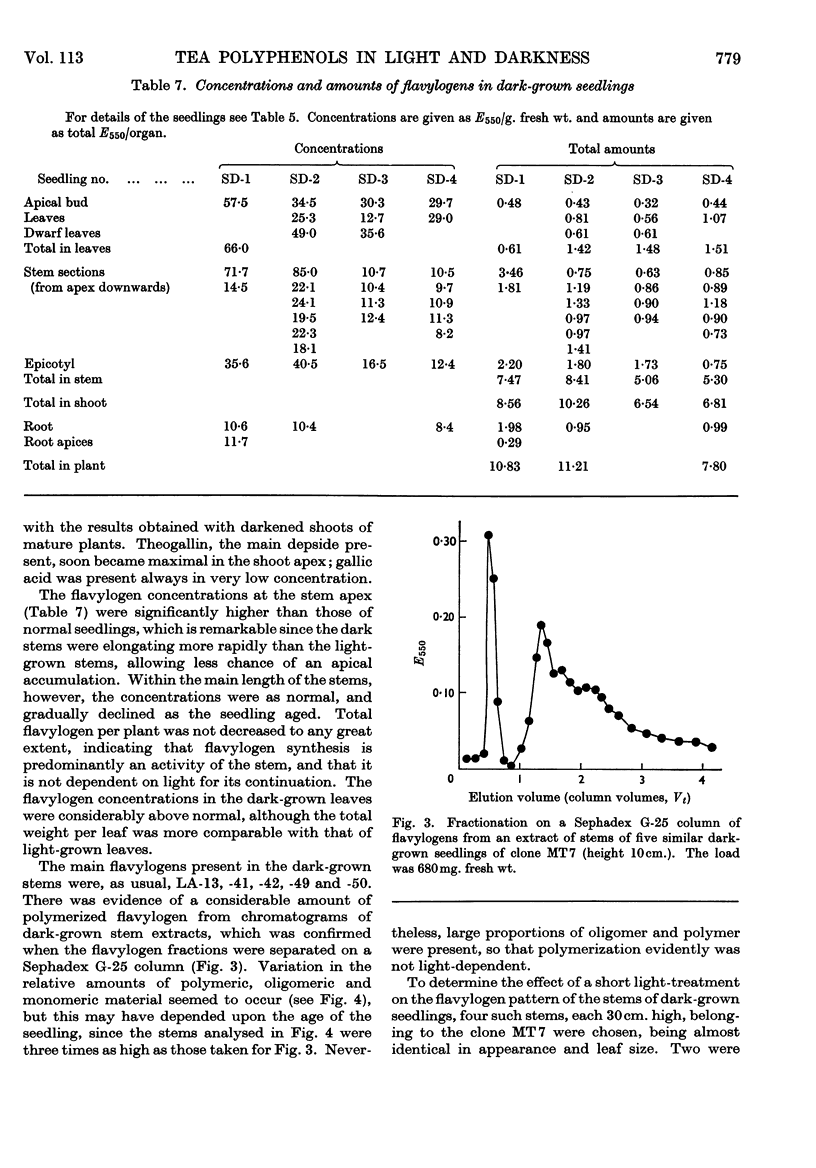
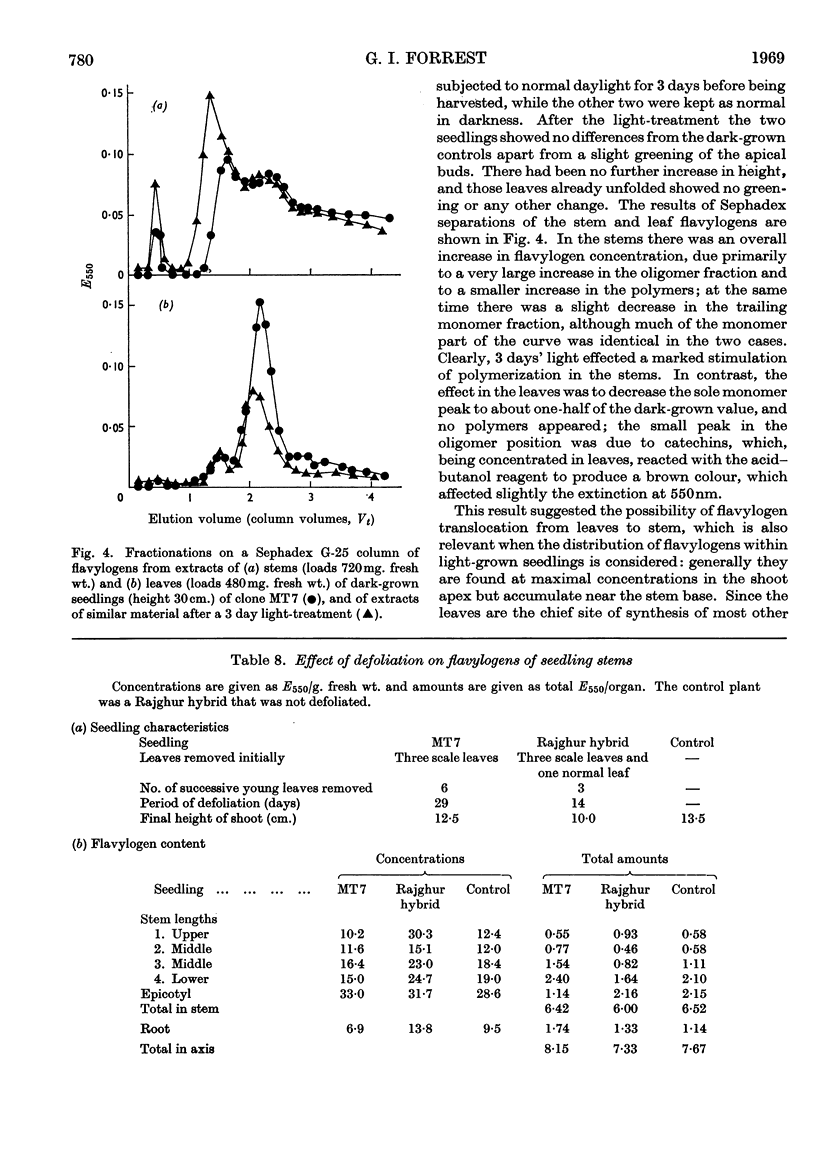
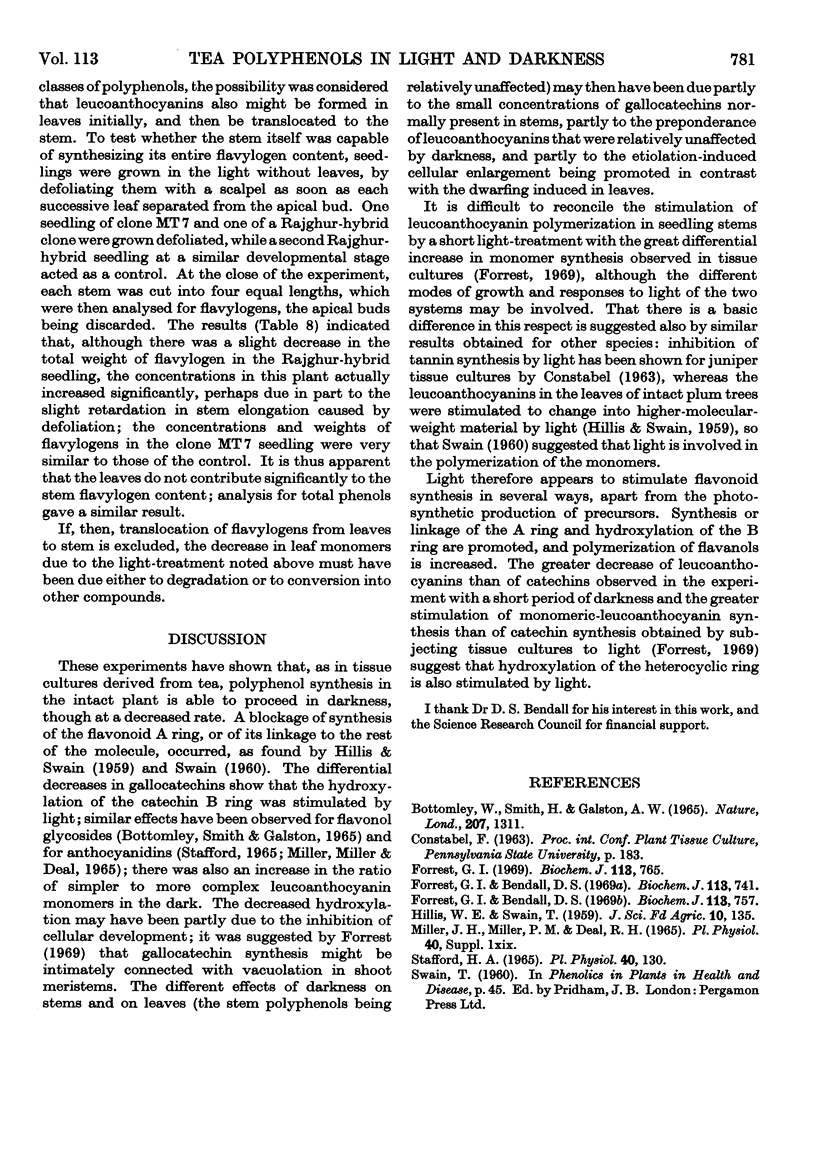
Selected References
These references are in PubMed. This may not be the complete list of references from this article.
- Forrest G. I., Bendall D. S. The distribution of polyphenols in the tea plant (Camellia sinensis L.). Biochem J. 1969 Aug;113(5):741–755. doi: 10.1042/bj1130741. [DOI] [PMC free article] [PubMed] [Google Scholar]
- Forrest G. I., Bendall D. S. The separation and distribution of simple and condensed leucoanthocyanins of the tea plant (Camellia sinensis L.). Biochem J. 1969 Aug;113(5):757–763. doi: 10.1042/bj1130757. [DOI] [PMC free article] [PubMed] [Google Scholar]
- Forrest G. I. Studies on the polyphenol metabolism of tissue cultures derived from the tea pant (Camellia sinensis L.). Biochem J. 1969 Aug;113(5):765–781. doi: 10.1042/bj1130765. [DOI] [PMC free article] [PubMed] [Google Scholar]
- Green A. Tracking cobalt project. Nature. 1965 Sep 18;207(5003):1311–1311. doi: 10.1038/2071311a0. [DOI] [PubMed] [Google Scholar]


